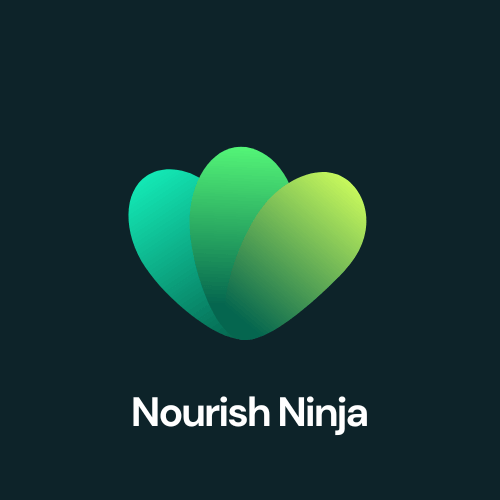The condition of our brains as we age is more essential. Especially in older adults, researchers have been examining the relationship between food and brain function. Scientists have discovered new insights into the potential of food as medicine by analysing how dietary changes might impact the de-ageing process of the brain.
In this post, we’ll examine how nutrition affects senior brain health and highlight some important research findings.

What does “De-Ageing” mean?
When we use the term “de-aging,” we mean a process that slows down or reverses the effects of ageing on the body and mind.
While it’s important to highlight that there is currently no technique to completely reverse ageing, researchers are constantly looking at ways to lessen age-related decreases and encourage healthy ageing.
People may be able to maximise their general well-being and maintain a more youthful condition as they age by many methods including lifestyle changes, such as food adjustments, frequent exercise, and stress management.
The idea of de-ageing gives promise for a healthier and more vibrant existence as we negotiate the process of ageing, even though it may not require going back in time completely.
Benefits of De-Aging
As people age, pursuing de-ageing may provide them with several advantages.
People may enjoy greater physical vitality, mental clarity, and emotional well-being by adopting healthy lifestyle practices and making thoughtful choices regarding nutrition, exercise, and general well-being.
As we age, de-ageing techniques can help us retain a greater quality of life, increase our independence, and encourage an active and involved lifestyle.
Additionally, slowing down age-related decline may lessen the likelihood of developing certain illnesses and health disorders that are frequently linked to ageing.
Although the idea of de-ageing is still being researched, the prospects it provides for bettering one’s general health and well-being are encouraging for people hoping to age gracefully and lead satisfying lives.
The Science of Ageing
The study of ageing is an interesting field of study that covers several academic fields.
Researchers are looking at the basic mechanisms of ageing, including cellular damage, inflammation, and hereditary variables.
They are looking at how lifestyle decisions, such as nutrition and exercise, might affect these procedures and possibly delay the ageing process.
Researchers are also looking at how certain chemicals and substances, such as antioxidants and anti-inflammatory drugs, might help the body fight off ageing-related changes.

Additionally, developments in genetic engineering and regenerative medicine show promise for creating novel medicines that might aid in the rejuvenation of tissues and organs.
Although the science of anti-ageing is complicated and evolving, these research and discoveries give us hope for a brighter future.
What Causes Aging?
All living things experience the complicated and natural process of ageing. Numerous internal and external variables have an impact on it.
Our tissues and cells experience changes throughout time that may cause a slow deterioration in their functionality.
Cellular damage that builds up over time, the shortening of protective structures called telomeres, hereditary variables, and the effects of environmental factors including pollution exposure and ongoing stress are some of the key causes of ageing.
These substances can lead to oxidative stress and inflammatory reactions, both of which hasten ageing.
Even while ageing is a natural part of life, understanding the root reasons may enable researchers to develop strategies to slow down or diminish it.
Effect of Diet Changes on De-Aging
Because what we eat directly affects our overall health and happiness, diet is crucial to the anti-ageing process.
Our ability to age more slowly can be significantly impacted by improving our meals.
Nutrient-rich foods that we may include in our meals to provide our bodies with the vitamins, minerals, and antioxidants they need to battle inflammation and cellular damage include lean proteins, whole grains, fruits, vegetables, and healthy fats.
These dietary changes can improve your overall vitality, immune system function, energy levels, skin elasticity, immune system stimulation, and cognitive health.
Reduced intake of processed meals, sweet snacks, and harmful fats can also lessen the detrimental impact these foods have on our bodies.
It’s crucial to keep in mind that while dietary modifications alone cannot totally stop the ageing process, they may greatly enhance our ability to age gracefully and lead younger, more vibrant lives.
The De-Aging Journey
Incorporating Brain-Boosting Nutrients
A critical component of the anti-ageing process is including foods that promote brain function in our diets.
These nutrients have been shown to enhance brain and cognitive function, which may slow the ageing of the ageing brain. Some essential nutrients to concentrate on are:
- Omega-3 Fatty Acids: Omega-3 fatty acids, which are present in fatty fish like salmon as well as walnuts and flaxseeds, have been linked to enhanced cognitive function and better brain health. They are essential for preserving the shape and functionality of brain cells.
- Antioxidants: Foods high in antioxidants aid in the fight against oxidative stress, which can cause cellular damage and speed up ageing. Antioxidants, which can shield the brain from age-related damage, are abundant in berries, dark leafy greens, colourful vegetables, and fruits.
We can give our brains the fundamental building blocks they require to function optimally and possibly slow down the ageing process by including these brain-boosting nutrients in our diets.
Following Specific Dietary Patterns
Adhering to specific dietary patterns linked to healthy ageing is another crucial aspect of the anti-ageing journey.
Studies have connected these eating habits to better brain health and a lower risk of cognitive decline. There are two notable examples:
- Mediterranean Diet: Whole grains, legumes, fruits, and vegetables, as well as lean proteins like those found in fish and chicken, are prioritised in the Mediterranean diet, along with moderate amounts of healthy fats like olive oil. This dietary pattern has been linked to a lower prevalence of cognitive decline and neurodegenerative diseases.
- Gut-Brain Connection: New research emphasises the significance of the gut-brain connection in maintaining overall brain health. Yoghurt, kefir, and fermented vegetables are examples of foods high in probiotics that can help maintain a healthy gut microbiome, which can have a positive impact on cognitive function and brain function.
Adopting these particular dietary patterns can help people give their brains a variety of healthy nutrients and support a healthy gut microbiome, which may help the de-ageing process and preserve brain health as they age.
Including brain-boosting nutrients and adhering to particular dietary patterns can be helpful steps towards supporting brain health and potentially slowing down the effects of ageing, even though each person’s de-ageing journey is unique and requires personalised considerations.
Additional advice on adjusting these dietary changes to meet unique needs and objectives can be obtained by speaking with registered dietitians or medical professionals.
Diet Plan for De-Aging

A well-crafted diet regimen can significantly contribute to maintaining a youthful mind and body when it comes to anti-ageing.
Let’s look at two categories to take into account when developing a diet plan for anti-ageing.
To get a healthy diet, I’d highly recommend you read this post: Diet and Nutrition: 10 Incredible Ways to enhance your eating habits.
Food and Drinks for De-Aging
- Colourful Fruits and Vegetables: You should include a variety of coloured fruits and vegetables in your diet, including berries, leafy greens, citrus fruits, and bell peppers are all excellent choices. These bright meals are packed with nutrients, vitamins, and antioxidants that promote overall health by protecting cells from degeneration.
- Whole Grains: Choose whole grains over refined grains such as brown rice, quinoa, whole wheat bread, and oats. These provide complex carbs, fibre, and important minerals that promote brain health and energy throughout the day.
- Healthy Fats: Include healthy fats in your diet, such as avocados, nuts, seeds, and olive oil. These fats supply necessary fatty acids that assist promote brain function and prevent inflammation in the body.
- Lean Proteins: Include lean protein sources in your diet, such as fish, chicken, tofu, lentils, and eggs. Protein is essential for tissue repair, maintenance, and cellular health in general.
Nutrients for Optimal De-Aging
- Omega-3 Fatty Acids: Found in fatty fish such as salmon, trout, and sardines, as well as chia seeds and walnuts, these beneficial fats boost brain health, decrease inflammation, and promote optimal cognitive performance.
- Antioxidants: Antioxidant-rich foods assist to combat the effects of oxidative stress, which leads to ageing. Antioxidants are abundant in blueberries, spinach, kale, dark chocolate, and green tea.
- B Vitamins: Include B vitamin-rich foods such as leafy greens, legumes, whole grains, eggs, and lean meats in your diet. B vitamins help in brain function and energy generation, as well as promoting vitality and cognitive wellness.
- Vitamin D: Get enough vitamin D from foods like fatty fish, fortified dairy products, and sunshine exposure. Vitamin D is important for brain health, immunological function, and bone health.
A de-ageing diet plan should include a range of nutrient-dense meals, with an emphasis on colourful fruits and vegetables, whole grains, healthy fats, lean proteins, and particular nutrients such as omega-3 fatty acids, antioxidants, B vitamins, and vitamin D. Individual tastes, dietary limitations, and overall health objectives must all be considered while developing a diet plan.
A licenced dietitian can offer specialised advice to assist in optimising the de-ageing journey through a well-balanced and healthy diet.
To learn more about how eating healthy food causes detox, you can read this blog post: 7 Secrets of Detoxification Magic: The Power of Healthy Eating
Studies and Evidence

The scientific study offers important insights into the effectiveness of various therapies and dietary practices when it comes to anti-ageing.
Let’s examine two categories of study findings that shed insight on brain aging and nutritional strategies for ideal aging.
Evidence from Brain Aging Studies
The impact of lifestyle factors, such as nutrition, on brain function and the potential for de-aging, has been the subject of numerous research.
The research consistently highlights the following findings:
- Dietary Patterns: Studies have shown that those who follow specific eating habits, such as the Mediterranean diet, are less likely to have memory loss and neurological disorders. According to these results, eating a diet rich in fruits, vegetables, whole grains, healthy fats, and lean meats can help to maintain brain function as well as slow down the ageing process.
- Foods for Healthy Brain Function: Studies have shown that certain nutrients enhance both de-ageing and mental wellness. For example, omega-3 fatty acids have been related to improved mental abilities and a lower risk of ageing-related memory loss. Also related to improved brain function and anti-ageing protection are the antioxidants found in colourful fruits and vegetables.
Nutritional Techniques for the Best Aging
There has also been research on specific dietary practices that help slow down ageing. There have been the following discoveries:
Research suggests that calorie restriction
as opposed to starvation—can extend life and improve overall wellness. Less calorie consumption while maintaining a healthy diet may help people live longer and slow down the ageing process.
Intermittent Fasting
Due to its possible anti-ageing benefits, intermittent fasting, which involves cycling between fasting and eating periods, has grown in favour. According to a study, intermittent fasting may enhance metabolic health overall, boost mental abilities, and speed up cell repair processes.
These studies and their results have key implications for the role of nutrition in brain ageing and suggestions for improving the anti-ageing process.
These results are positive, but more research is required to fully understand the processes at work and modify suggestions for nutrition for particular needs.
Suggestions based on evidence may help people on their de-ageing journey and encourage an active and strong mind as they age gracefully as the scientific community continues to explore this topic.
Conclusion,
Finally, the idea of “de-ageing” and its possible effect on brain health have caught the attention of researchers, medical professionals, and those who want to maintain mental youth as they age.
Observing patients’ brain degeneration and evaluating the research’s findings show that nutrition plays a key role in promoting this process.
People can take an active role in their own anti-ageing process by eating foods that support mental health, following certain dietary regimens, and using nutritional methods based on scientific research.
Research continually highlights the importance of eating a nutritious diet that includes lean meats, whole grains, colourful fruits and vegetables, and healthy fats.
Omega-3 fatty acids and antioxidants are two nutrients that have been connected to improved memory and defence against ageing-related damage.
Further research relating Mediterranean diet eating habits to improved brain function and a reduction in memory loss showed positive findings.
It is essential to keep in mind that everyone’s journey toward anti-ageing is different, requiring customized approaches to address each person’s demands, preferences, and health issues.
Along this life-changing journey, speaking with medical experts or qualified dietitians who focus on nutrition and ageing can be very helpful.
The possibility of preserving a sharp and sensitive mind becomes more tempting as we understand more about the complex relationships between nutrition and ageing.
By implementing a well-designed diet plan, including brain-boosting foods, and putting scientifically proven techniques into real life, people can take action to maintain their brain health and possibly lessen the effects of aging.
In the end, the fight against ageing is a comprehensive effort that extends beyond diet alone.
De-ageing is more likely if you lead a healthy lifestyle that includes regular exercise, restful sleep, stress reduction, and social engagement.
By adopting a complete plan, people may improve their mental abilities, age with grace and energy, and maintain their brain health.


